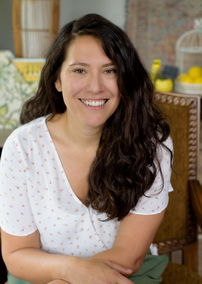|
December 2023
Like it or not, WINTER IS COMING and with it, symptoms associated with Seasonal Affective Disorder (SAD). SAD is a form of depression that typically takes place during the winter months. Symptoms of mood changes, appetite and sleep changes, and social withdrawal are commonly experienced. As we approach this season, I invite you to take some time and incorporate some of the below suggestions. One contributing factor that could be impacting your mood is your mindset. The natural world around you is slowing down. Take a moment to think about how the trees have dropped all of their leaves and the animals in your backyard don't seem to work as hard. By leaning into your natural surroundings, you can gain a sense of acceptance of the season of slowing down. By accepting that your energy levels and motivation may feel lower, you create an understanding that can reduce frustration.. A great way to ease into this mindset change is by practicing Hygge. Hygge is a Scandinavian term that loosely translates to “cozy.” In Scandinavian countries, the winters feel long, dark and cold, and by practicing Hygge people are able to combat the winter blues. A great way to understand the feeling of Hygge is to think about candles, a fireplace, a warm blanket, and spending time with family and friends. A few ways to experience the Hygge way of living are:
Lastly, see if you can still incorporate some outdoor time by bundling up and going for a walk or hike. Movement helps release serotonin, and when you combine that with fresh air, a magical combination is created. Too cold? Think about other ways to move physically. Even 20 minutes a few times a week could make a big difference. Whatever you choose to proactively practice can make a difference in your SAD symptoms. The most valuable piece is to try and lean into some of the above suggestions. We look forward to hearing about your experiences and hope you can enjoy some cozy winter nights. Until next time, Sofia Neves-Gilcher, MA, LPC Be Well Psychotherapy, LLC
0 Comments
|
AuthorSofia Neves-Gilcher Archives
February 2024
Categories |
| August 2021 Newsletter: Technology | |
| File Size: | 3710 kb |
| File Type: | |
| June 2021 Newsletter: Pandemic Anxiety | |
| File Size: | 3668 kb |
| File Type: | |
| May 2021 Newsletter: Vulnerability | |
| File Size: | 3670 kb |
| File Type: | |
| March 2021 Newsletter | |
| File Size: | 4824 kb |
| File Type: | |
Proudly powered by Weebly
